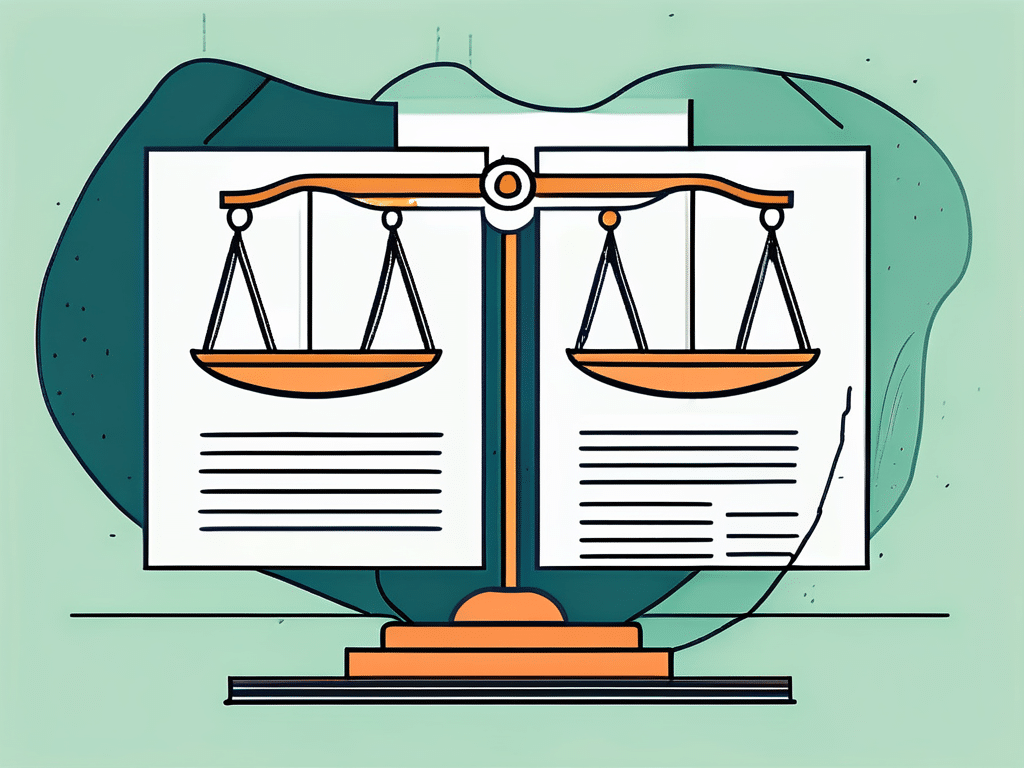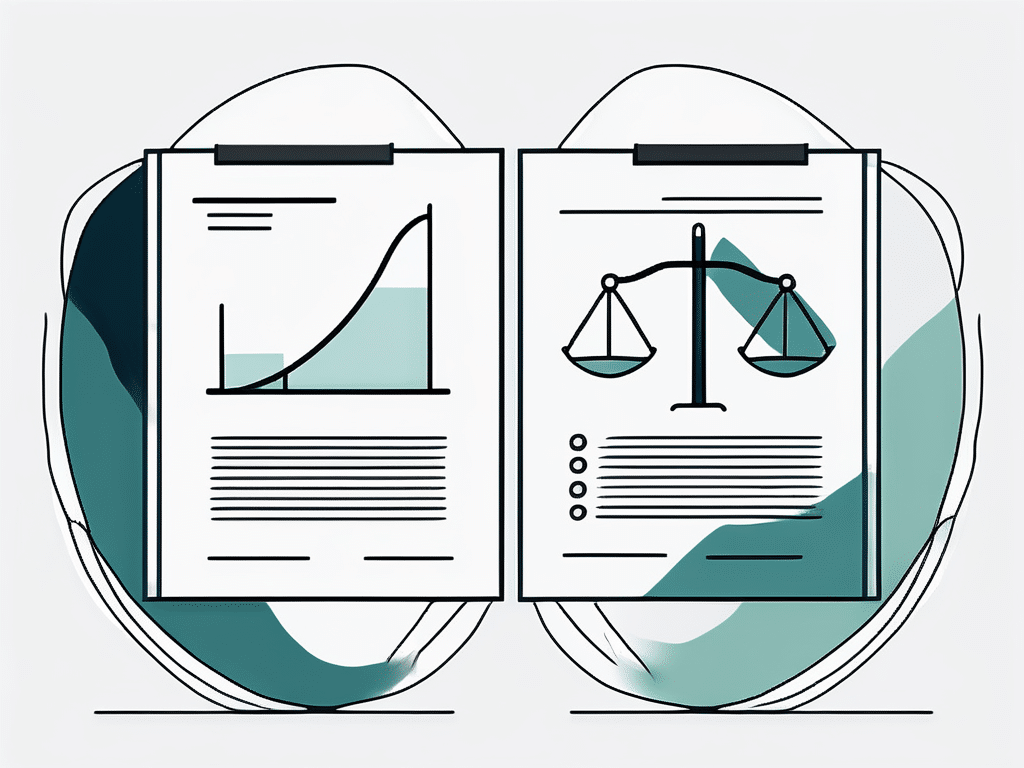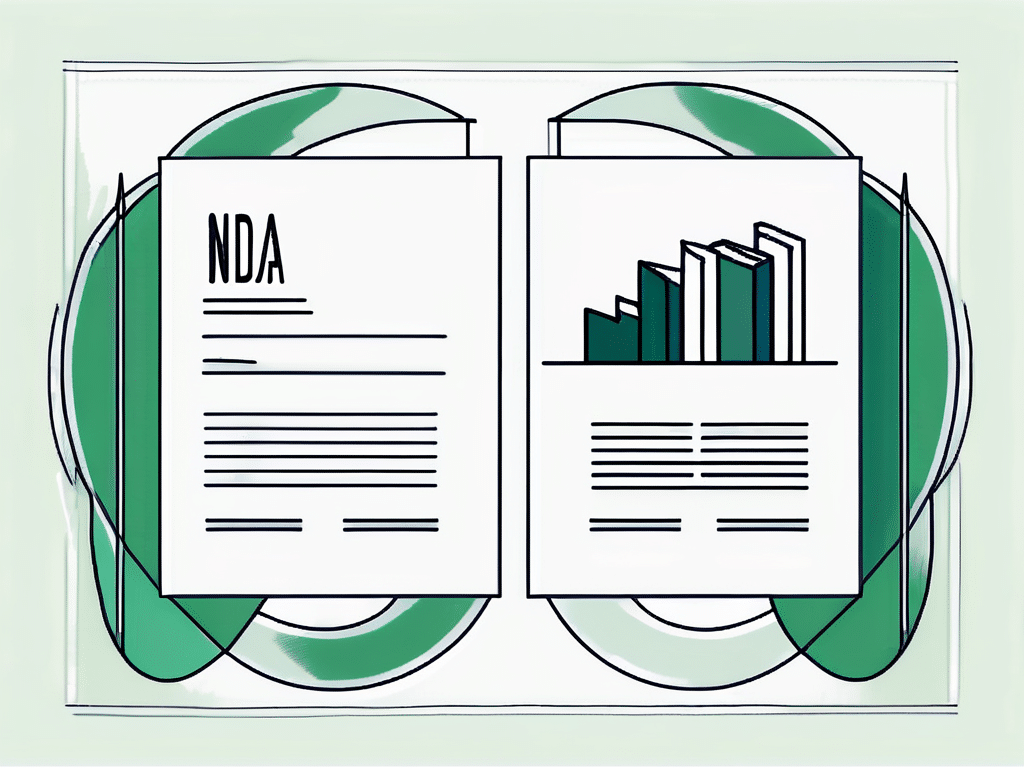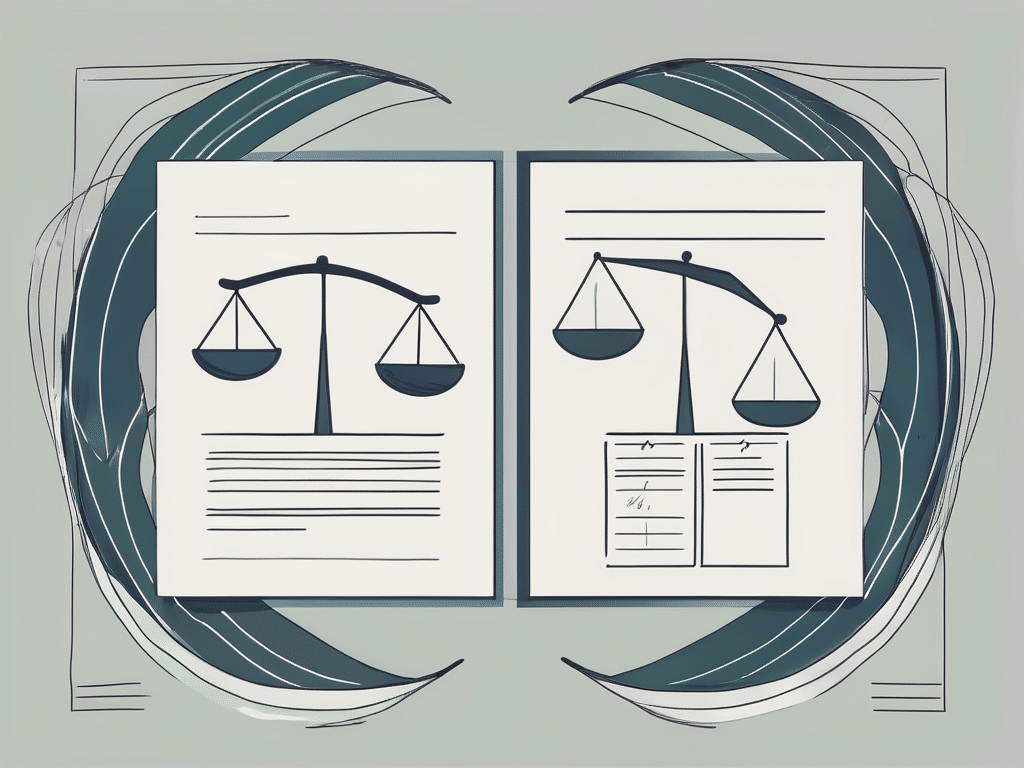Non-Disclosure Agreements (NDAs) are legal contracts that protect sensitive and confidential information from being disclosed to unauthorized parties. They play a crucial role in maintaining the confidentiality of valuable business information, trade secrets, and intellectual property. There are various types of NDAs, including mutual and unilateral NDAs.
Understanding Non-Disclosure Agreements (NDAs)
Before diving into the differences between mutual and unilateral NDAs, let’s explore the basics of NDAs and their importance in business.

The Basics of NDAs
Non-Disclosure Agreements, commonly known as NDAs, are legally binding contracts that establish a confidential relationship between the parties involved.
They outline the terms and conditions under which one party (the disclosing party) shares confidential information with another party (the recipient party) while ensuring that the recipient party does not disclose the information to unauthorized individuals or entities.
NDAs are often used in various commercial transactions, partnerships, employment agreements, and during the process of mergers and acquisitions.
Understanding the intricacies of NDAs involves recognizing the different types of information that can be classified as confidential. This can range from trade secrets, business strategies, product designs, and financial data to customer information, marketing plans, and proprietary software algorithms. The breadth of information covered by NDAs underscores their significance in safeguarding a company’s intellectual property and competitive edge.
Importance of NDAs in Business
NDAs are vital for protecting sensitive information and preserving the competitive advantage of a business.
By signing an NDA, parties can freely exchange proprietary knowledge, financial data, customer lists, marketing strategies, and other valuable information without the fear of it falling into the wrong hands.
Confidentiality is crucial in fostering trust between business entities and maintaining the integrity of proprietary information.
Furthermore, NDAs play a pivotal role in facilitating collaborations and partnerships between organizations. In industries where innovation is key, such as technology and pharmaceuticals, NDAs enable companies to engage in joint ventures, research projects, and licensing agreements with the assurance that their confidential information will be safeguarded. This level of protection encourages businesses to explore new opportunities and expand their operations without compromising their intellectual assets.
Defining Mutual NDAs
Mutual NDAs, also known as two-way NDAs, are agreements where both parties involved agree to protect each other’s confidential information. It is a reciprocal arrangement where both parties disclose and receive sensitive details under the same terms.

When entering into a mutual NDA, it is crucial for both parties to clearly outline the scope of the confidential information being shared. This can include proprietary technology, financial data, customer lists, marketing strategies, or any other sensitive material that needs to be safeguarded.
Key Features of Mutual NDAs
1. Symmetrical Obligations: In a mutual NDA, both parties have equal and reciprocal obligations to maintain confidentiality and non-disclosure.
2. Mutual Protections: Both parties agree to protect the disclosed information with equal measures and precautions.
3. Scope of Confidential Information: The NDA clearly defines the type of information considered confidential and subject to protection.
It is essential for both parties to understand the consequences of breaching a mutual NDA. Violating the terms of the agreement can lead to legal action, financial penalties, and damage to the party’s reputation and trustworthiness in business dealings.
When to Use Mutual NDAs
Mutual NDAs are commonly used in circumstances where both parties are exchanging valuable and confidential information. This could include situations like joint ventures, collaborations, or when confidential data needs to be shared during negotiations.
By utilizing mutual NDAs, businesses can foster a sense of trust and security in their partnerships. These agreements provide a balanced approach to protecting sensitive information and demonstrate the parties’ commitment to maintaining privacy.
Exploring Unilateral NDAs
Unilateral NDAs, also referred to as one-way NDAs, are agreements where only one party discloses confidential information while the other party agrees to keep it confidential.
Unilateral NDAs play a crucial role in various business dealings, enabling companies to share sensitive information with third parties while maintaining control over its confidentiality.
Characteristics of Unilateral NDAs
1. Asymmetrical Obligations: In a unilateral NDA, only the receiving party has the obligation to maintain confidentiality, while the disclosing party is not bound by similar restrictions.
2. Primary Discloser: The disclosing party has control over what information is shared while the recipient party is responsible for safeguarding that information.
3. Limited Scope: The NDA precisely defines the confidential information to be protected.
Unilateral NDAs are designed to protect the interests of the disclosing party while allowing the recipient to access necessary information under strict confidentiality guidelines.
Appropriate Situations for Unilateral NDAs
Unilateral NDAs are often used when one party needs to share sensitive information with another party for a specific purpose, such as when a company engages a contractor or outsources certain services.
These agreements help to ensure that confidential information remains protected even if the disclosing party does not possess sensitive information belonging to the recipient party.
Furthermore, unilateral NDAs are commonly employed in scenarios where a company is seeking investment or partnership opportunities, requiring the sharing of proprietary data without the risk of it being disclosed to competitors.
Mutual vs Unilateral NDAs: A Comparison
When it comes to safeguarding confidential information, understanding the nuances between mutual and unilateral NDAs is crucial for businesses and individuals alike. Both types of Non-Disclosure Agreements (NDAs) serve the fundamental purpose of protecting sensitive data from falling into the wrong hands.
By entering into either a mutual or unilateral NDA, parties are creating a legal framework that not only emphasizes the importance of confidentiality but also establishes consequences for breaches of trust.
Similarities Between Mutual and Unilateral NDAs
Both mutual and unilateral NDAs are legal contracts designed to protect confidential information. These agreements set forth clear guidelines on what constitutes confidential information and outline the responsibilities of the parties involved in safeguarding such data.
They establish a binding obligation for parties involved to maintain the secrecy of disclosed information, thereby fostering an environment of trust and collaboration. In a world where information is a valuable currency, these NDAs play a vital role in ensuring that proprietary knowledge remains secure.
Both types of NDAs can significantly contribute to safeguarding business interests and intellectual property. Whether it’s a startup looking to protect its innovative ideas or a corporation sharing proprietary data with a potential partner, the use of NDAs can offer a layer of protection in an increasingly competitive marketplace.
Distinct Differences Between the Two
The primary difference between mutual and unilateral NDAs lies in the level of obligation placed on the parties involved. In a mutual NDA, both parties are bound by reciprocal obligations to protect each other’s confidential information. This symmetrical arrangement ensures that both sides are equally committed to maintaining confidentiality.
On the other hand, in a unilateral NDA, only the recipient party is obligated to maintain confidentiality, while the disclosing party is not required to keep the recipient’s information secret. This one-sided approach is often seen in situations where one party is sharing sensitive information with another without expecting reciprocal disclosures.
The choice between mutual or unilateral NDAs depends on the specific circumstances, the level of information exchange, and the desired level of protection. Factors such as the nature of the information being shared, the duration of the agreement, and the trust between the parties can all influence the decision-making process when selecting the appropriate type of NDA.
Choosing the Right NDA for Your Needs
Factors to Consider
When deciding whether to use a mutual or unilateral NDA, consider the following factors:

- The nature and sensitivity of the information being shared
- The level of trust and relationship between the parties involved
- The likelihood of reciprocal information exchange
- The potential impact of information disclosure on business interests
Another crucial factor to consider is the duration of the confidentiality agreement. Depending on the nature of the information and the parties involved, you may need to specify a time limit for which the NDA will remain in effect. This can help provide clarity and avoid any misunderstandings regarding the duration of confidentiality obligations.
Furthermore, it is important to outline the specific purposes for which the confidential information can be used. Clearly defining the permitted uses of the shared information can prevent any misuse or unauthorized disclosure, ensuring that the information is only utilized for the intended purposes agreed upon by both parties.
Legal Implications of Each NDA Type
It is crucial to seek legal counsel to ensure that the chosen NDA type aligns with your specific legal requirements.
An attorney experienced in contract law can guide you through the drafting, negotiation, and implementation of NDAs to ensure they provide adequate protection for your specific business needs.
Moreover, it is essential to consider the jurisdiction in which the NDA will be enforced. Different regions may have varying laws and regulations regarding confidentiality agreements, so consulting with lawyers familiar with the relevant jurisdiction can help ensure that your NDA is legally sound and enforceable


